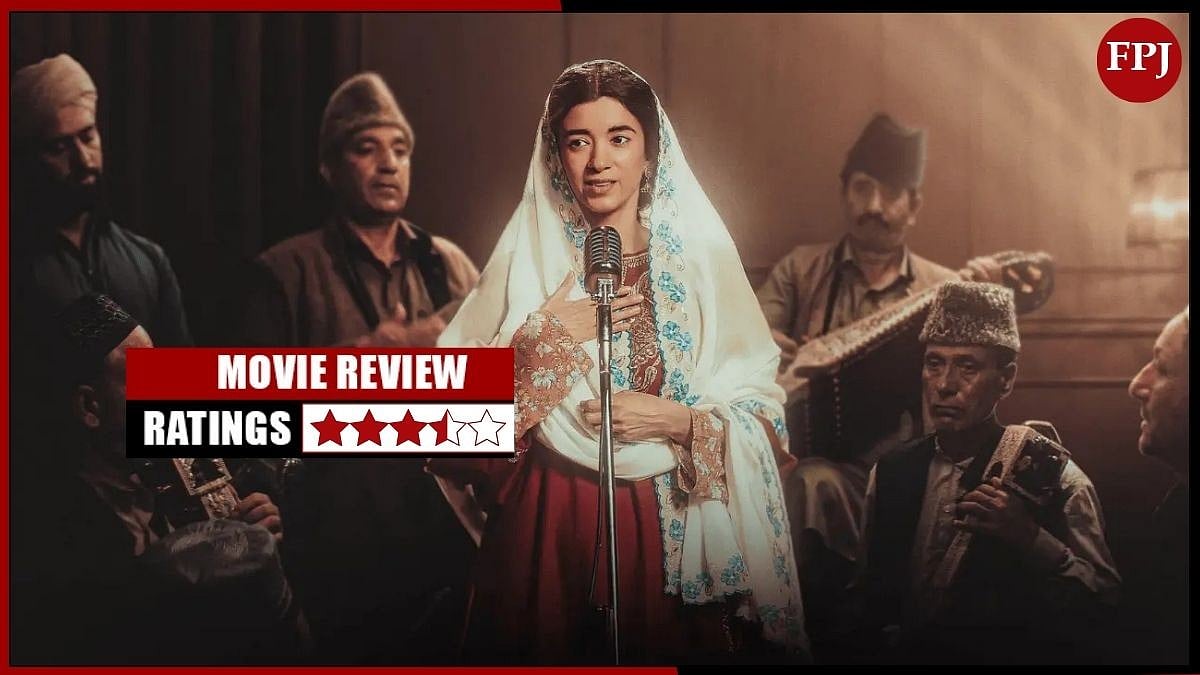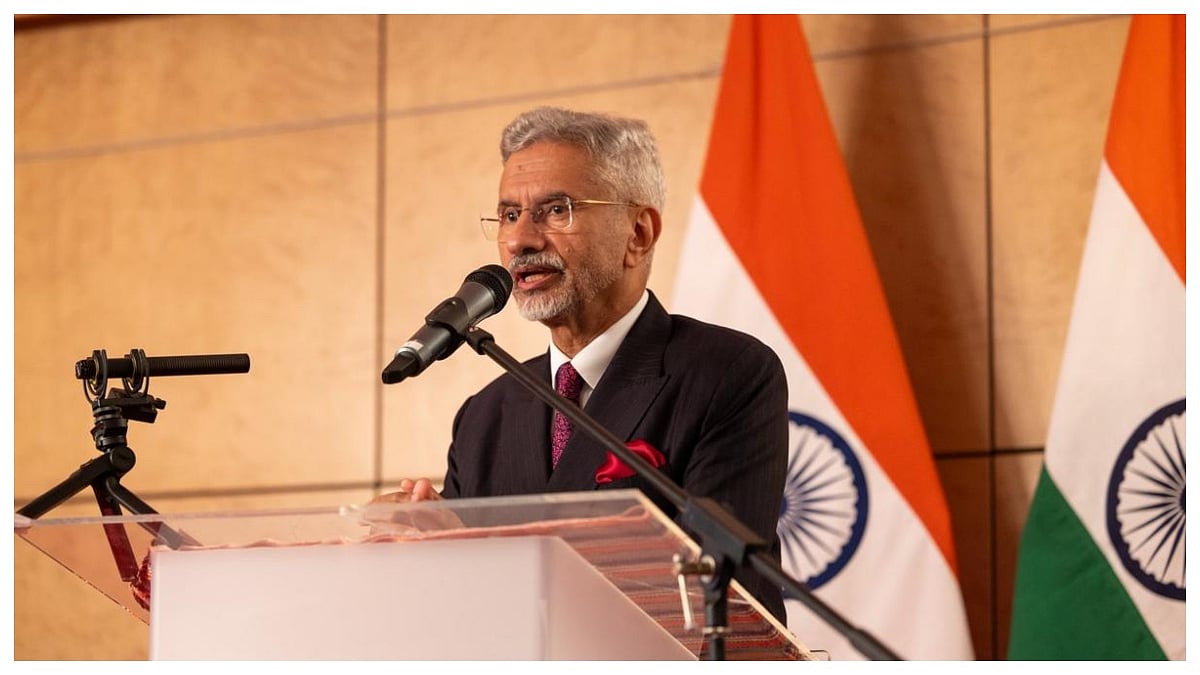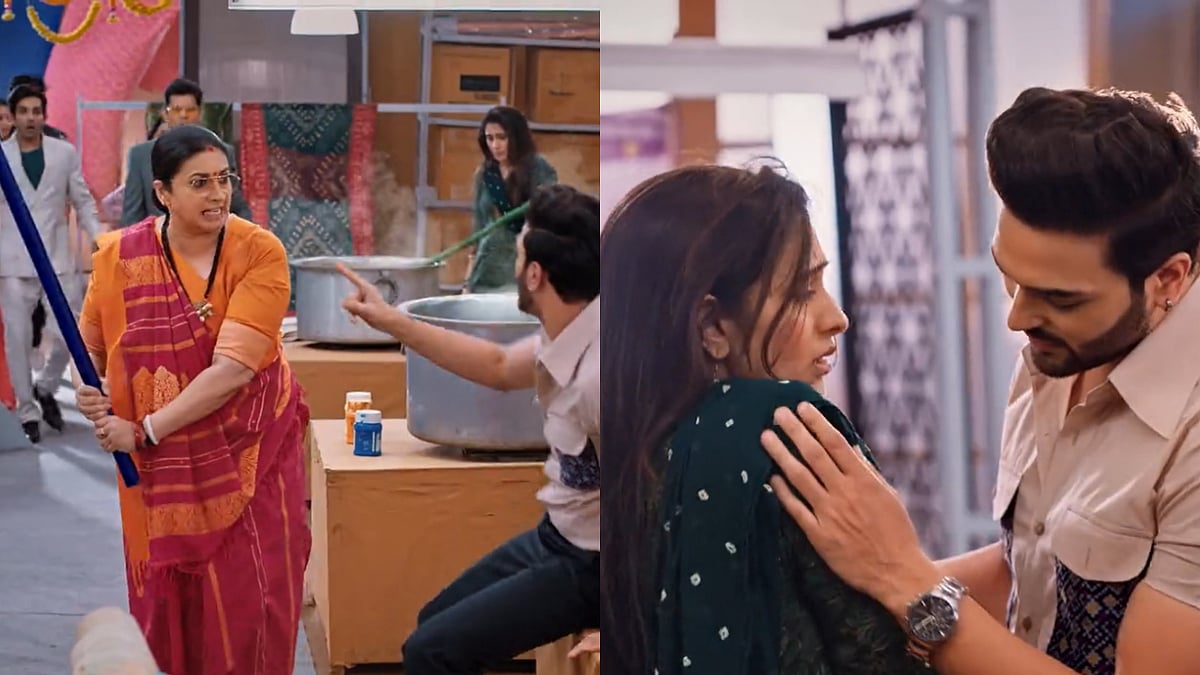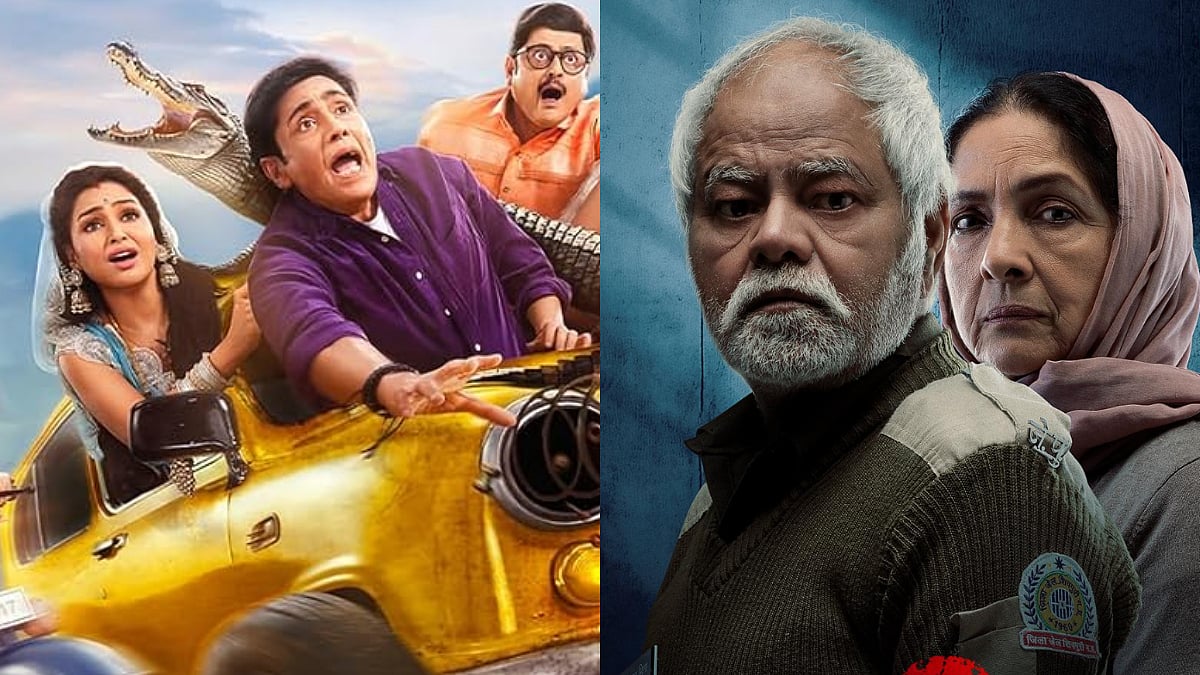Title: Songs of Paradise
Director: Danish Renzu
Cast: Saba Azad, Soni Razdan, Zain Khan Durrani, Sheeba Chaddha, Taaruk Raina
Where: Prime Video
Rating: 3.5 Stars
Cinema set in Kashmir often falls into the binary trap of postcard-pretty romance or conflict-driven gloom. This film attempts something different, resurrecting the life of Raj Begum, the first female singer of Radio Kashmir, through a biopic that is neither showy nor melodramatic. Instead, it offers a strait-laced, patient telling of a woman negotiating social prejudice and uncertainties, and her own growing confidence.
Directed by Danish Renzu, the film is commendably sincere, if occasionally weighed down by its own reverence. The narrative begins on shaky ground, but the gradual unfolding rewards the viewer, provided one has the patience for its slow-burn rhythm.
The story, set in 1950s Srinagar, follows Zeba, the daughter of a humble tailor, who reluctantly steps into a singing competition at Radio Kashmir. Winning it changes her life, rechristening her as “Noor Begum,” a stage name that carries both promise and peril. The film charts her hesitations, small rebellions, and eventual triumph with sensitivity. What it sometimes lacks in cinematic sweep, it compensates for with restraint. The result: a film that may not dazzle in every frame but lingers with its quiet dignity.
Actors’ performance
This is very much Saba Azad’s film. As Zeba, she captures the character’s nervous tremors, darting glances, and tentative voice with remarkable grace. Her performance is textured, avoiding the trap of making Noor Begum a mere saintly icon. When the role passes to Soni Razdan as the older Raj Begum, however, the momentum dips. Razdan, usually dependable, seems underwritten here, her matriarchal gravitas never fully coming alive.
Sheeba Chaddha, as Zeba’s conflicted mother, is the undeniable scene-stealer, breathing fire and tenderness into every frame she inhabits. Zain Khan Durrani is charmingly poised as the Oxford-returned husband, while veterans like Shishir Sharma and Lalit Parimoo lend sturdy support. Lillete Dubey, sadly, is criminally wasted in a fleeting role as Raj’s aunt.
Music
For a film about music, this film is refreshingly unshowy. Abhay Sopori’s compositions, sung by Masrat Un Nissa, refuse to overwhelm the narrative; instead, they serve as its emotional bedrock. The songs waft through the story like a quiet river, resonating long after the film ends.
Visually, the film is uneven. Instead of cool hues associated with Kashmir, the palette leans towards muted browns and greys, creating a claustrophobic mood. While this may mirror Zeba’s constrained circumstances, the effect is inconsistent. Some frames shimmer with authenticity; others feel drab. Still, the aesthetic reinforces the grounded, non-touristy lens through which the story is told.

FPJ verdict
Overall, this film is not a glossy spectacle, nor does it pretend to be. It is a tender portrait of a woman who dared to sing when silence was safer. Its strength lies in the performances and the haunting music that carries Noor Begum’s journey. Its weaknesses, occasional narrative flatness and missed cinematic opportunities, are noticeable but forgivable.
In an era of quick-fix entertainment, this film asks for patience. For those willing to give it, the film offers not fireworks, but a quiet glow, like a song remembered in the hush after it is sung.








